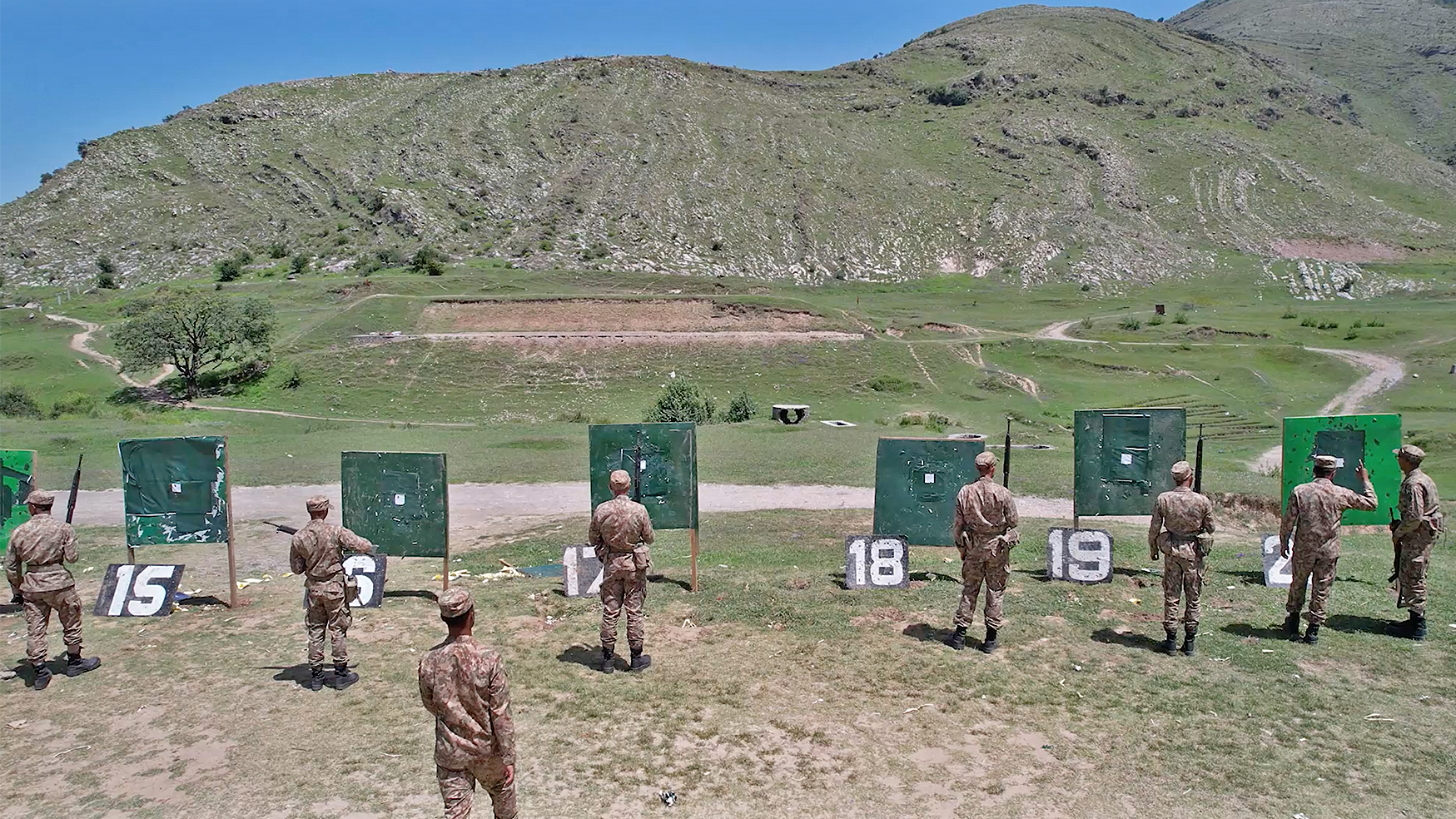ABBOTTABAD: As the sun breaks over the horizon, Pakistan’s foremost training and induction establishment for aspiring army officers springs to life amidst the captivating emerald hills of Khyber Pakhtunkhwa province.
Located near the village of Kakul in Abbottabad, the Pakistan Military Academy (PMA) is home to approximately 2,000 impeccably dressed cadets who emerge from the barracks each morning in graceful formations, preparing to undertake their demanding daily drill.
Established shortly after the country achieved independence from British rule in August 1947, the training facility was created to subject potential officers to rigorous academic and physical training programs, instilling in them the necessary qualities for a successful army career.
“The Pakistan Military Academy is the cradle of military leadership and a renowned military institute with a remarkable 76-year history,” Major Alamgir Pervez Khan, a commanding officer, told Arab News during a visit to the academy arranged by the army this week.

The aerial view shows Pakistan Military Academy (PMA) located near the village of Kakul in Abbottabad, Pakistan, on June 13, 2023. (AN photo)
He emphasized that the transformation of a gentleman cadet revolves around developing a sense of purpose and nationalism.
“These two aspects clearly define the reasons for their presence in the academy and fuel their desire to learn and optimize their potential,” he said. “However, the focus remains on instilling core values and competencies to develop their leadership skills.”

Cadets engage in target practice at the Pakistan Military Academy in Kakul, Pakistan on June 13, 2023. (AN photo)
PMA offers six different courses to meet a variety of the country’s defense needs, including the PMA Long Course, Technical Graduate Course, Integrated Course, Lady Cadet Course, Basic Military Training Course, and Mujahid Course.
Since its inception, the academy has produced highly revered military leaders, with hundreds of its graduates sacrificing their lives for the country and earning top gallantry awards in recognition of their courage.

Pakistani cadets engage in exercises under the supervision of their instructor at Pakistan Military Academy in Abbottabad, Pakistan, on June 13, 2023. (AN photo)
Major Khan stated that the academy follows a structured curriculum, combining theoretical knowledge with practical exercises and field training.
“PMA provides comprehensive training in various aspects, such as character development, leadership skills, intellectual enhancement, physical fitness, and combat readiness,” he said, highlighting that the training facility fosters a sense of comradeship and teamwork, which are both fundamental to military existence.

















